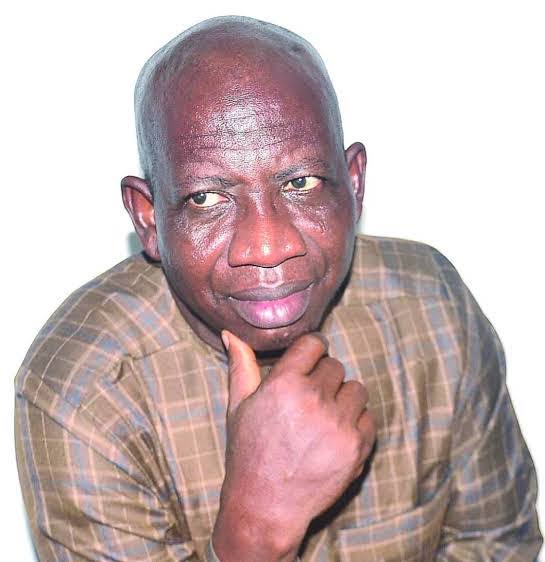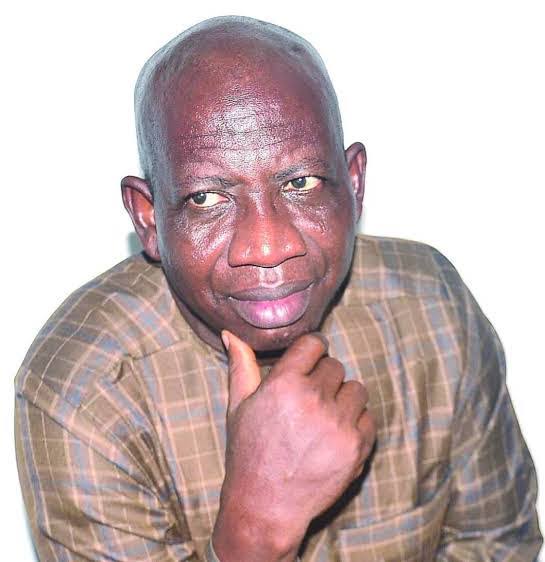FEMI ADEOTI COLUMN
The graphics before us are scary. So also are the limited options we
have. By omission or commission, we boxed ourselves into a dangerous
corner.
We are the masterminds of our undoing. And we must walk this dreaded
path. No viable alternatives in sight.
Worst still, the time is right now. And the time is not helping
matters. It’s seriously running against us. Its speed is like that of
light.
But, this quick confession: I don’t claim to be an expert in this
route I choose to tread today. Never. I wouldn’t do that. It is just
an honest attempt. So? I may sound naïve. I may even goof outright.
It’s all part of the attempt.
The recent picture the World Bank painted of us is ugly and
frightening. Its projection: Our debt servicing will gulp 123.4 per
cent of the Federal Government’s revenue in 2023. That is terrifying.
The bank’s Lead Country Economist for Nigeria, Alext Sienaert,
unveiled this disgusting portrait. Mind you, he couldn’t have been
frivolous.
He insisted our situation would be dire in 2023. His reason: “Debt
servicing would exceed 118 per cent of revenue reported in the first
four months.” That would be more precarious.
He sounded it loud and clear: “Borrowing more is not the solution.
Debt costs are rising rapidly, squeezing non-interest spending.”
Let our rulers who claim to have ears hear: “Debt servicing has surged
over the past decade and is expected to continue increasing over the
medium-term, crowding out productive spending.”
Our own Debt Management Office (DMO) lent credence to this: “The total
public debt stock rose from N42.84tn recorded in the second quarter to
N44.07tn in the third quarter of 2022.”
And the trembling implication: “This showed that there was a 2.85 per
cent increase quarter-on-quarter, with Nigeria acquiring N1.22tn debt
within three months.”
DMO insisted: “The increase in public debt was due to new borrowings
by the Federal Government to part-finance the deficit in the 2022
Appropriation Act, alongside new borrowings by sub-nationals.”
Imagine! We borrow to pay debt. Yes, that is how a layman understands
it. That’s what it’s it in his own simple economics.
The World Bank went back to its crystal ball: “Nigeria’s debt remains
sustainable, albeit vulnerable and costly, especially due to large and
growing financing from the Central Bank of Nigeria (CBN).”
A slim hope: “Currently, the debt stock of 27 per cent of the gross
domestic product is considered sustainable.” Caution: “Any
macro-fiscal shock can push debt to unsustainable levels.” That’s our
genuine fear.
The bank closed its case on this unpalatable note: “The debt to the
GDP is rising quickly. The total stock of debt in absolute value has
almost doubled between 2016 and 2020. Without a policy change, it is
expected to reach 40 per cent of the GDP by 2025.”
Minister of Finance, Zainab Ahmed, was forced out of her shell. She
had no choice than to willingly admit. Yes, Nigeria is struggling to
service its debt!
She caved in: “We are struggling with being able to service debt.”
That is official and from the horse’s mouth.
Why? Her uninspiring, drab and dry response: “Because even though
revenue is increasing, the expenditure has been increasing at a much
higher rate. So, it is a very difficult situation.”
A professor of Development Macroeconomics, University of Lagos,
Olufemi Saibu, fumed. He took the government to the cleaners. He
derided its insatiable appetite for borrowing. He nailed it on the
spot:
“We are over-borrowing. We continue to rely on international
benchmarks, which make us lazy in terms of revenue generation.”
We are at a crossroads. Nigeria is at a critical juncture. The
perilous times are here with us. We have a delicate choice to make.
And it is now or never.
We have some irritating anomalies in our queer system. And we feign
funny ignorance. As if they never exist. All over the world, oil
prices are rising. And all oil-producing countries are making
sumptuous repast of it with relish.
They are raking in huge revenues from the windfall. But not so with
Nigeria! We are losing big time to oil theft. This clime is truly
awkward, odd. Our oil income dwindles as production nose-dives.
This World Bank would not leave us alone. It refused to let go of us.
Its Nigeria Country Director, Shubham Chaudhuri, took the centre stage
the other day.
He threw open the bank’s report sheet on Nigeria. He reinforced our
plight and predicament. He firmly confirmed our fears. That was
expected. But he did not totally abandon us to our rotten predicament.
Chaudhuri spoke at a recent Lagos roundtable with media leaders. He
knew we needed urgent help. And was gracious enough. He opened windows
of rare opportunity.
They are the scary options before us. First window. We either move up,
remain stagnant, or continue to sink as we are doing presently.
This is christened muddling through. It’s wobbling and fumbling. It
has a slim and remote chance of taking us out of the woods.
His exact proposal: “Nigeria has a choice to make. A return to
business as usual will mean that economic growth will continue to
barely surpass population growth, per-capita GDP will continue to be
stagnant, and the number of poor will continue to rise.”
The second window: “Or Nigeria can choose to break decisively from
business-as-usual, to go from floating, buffeted by the swells of
global oil price movements, to taking its destiny in its own hands and
rising to its considerable potential.”
He tagged it, “Rising to Potential.” It’s the best option. It is
doable. It entails strong will, honesty, sincerity and determination.
Chaudhuri was unambiguous: “Choosing to depart from business-as-usual
will entail not only sustaining the bold reforms that have been taken
thus far, but going even further and with an even greater sense of
urgency to build on the momentum of these reforms.”
The last is the scariest of them all. The reason he aptly labelled it:
“Things Fall Apart.” That is the route we are treading carelessly and
recklessly now. These rulers of ours are falling us apart. And with
the fastest rapidity!
These same weird characters called rulers are so dubious. They are
always quick at citing horrible examples from foreign lands. They feel
excited when they quote frightful figures from other climes.
They use that to justify their dismal and depressive performance. They
are in a hurry not to cite what those countries are doing right. They
dwell richly on scary data and statistics.
Pity! They leave what ought to be done carelessly undone. They opt for
negative samples from abroad. And they feast on them recklessly. That
exposes the poor qualities these leaders are endowed with.
They don’t want to face this stark reality: Nigeria is debt-stuck.
And it is not sustainable. Chaudhuri’s “Rising to Potential” is the
remaining path for us.
It’s the only option to live our collective life decently. Others are
baits. We dare not touch them even with the longest spoon.
Make or mar? The choice is absolutely ours. Also ours are the
consequences of our decision or indecision, our action or inaction
inclusive!
Share your story or advertise with us: Whatsapp: +2347068606071 Email: info@newspotng.com







